With a focus on sustaining vital fish resources in Southeast Asian waters, 41 professionals from 11 nations took part in a May 16 to 19 workshop at the Daniel K. Inouye Center for Security Studies.
Titled “Building Maritime Shared Awareness in Southeast Asia II,” the workshop’s intent was to build information sharing processes and frameworks among policy makers, and enforcement and defense officials tasked with ensuring legal and sustainable use of the region’s ocean resources. This week’s event focused on building nations’ shared awareness capacity to combat illegal, unregulated and unreported fishing.
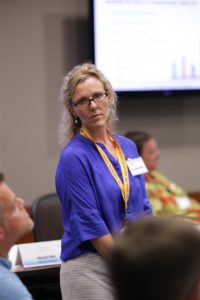
Dr. Kerry Lynn Nankivell addresses participants in the May 16 to 19 “Building Maritime Shared Awareness in Southeast Asia II” at the Daniel K. Inouye Asia-Pacific Center for Security Studies. Nankivell served as the workshop manager, facilitating discussions on using information sharing to combat illegal fishing activities in Southeast Asia. This was the second in a series of workshops designed to increase multilateral cooperation in the region.
“In the last 50 years, global demand for fish product has just about tripled and people are demanding double the amount of fish for personal consumption,” said Kerry Lynn Nankivell, DKI APCSS professor and workshop academic lead, adding, “This falls most heavily on Asia … demand is growing there faster than anywhere else in the world, and, the region is home to the world’s most important and profitable fish industry.”
Nankivell added that fishing’s economic impact is huge with 10 to 12 percent of the world’s population — roughly 800 million people — tied to the fishing industry. Thus, associated demand and profitability drive a large a large number of small and large fishery actors that, according to Nankivell, present Southeast Asia with interesting enforcement and policy management problems. IUU costs nation’s millions in legal revenues and contributes to depletion of fish supplies.
Workshop participants gathered this week to explore MDA-related processes that can help manage the challenge. They analyzed contributing factors to IUU fishing; evaluated how to leverage proven data-gathering and sharing technologies and practices; and identified first steps to improve regional coordination.
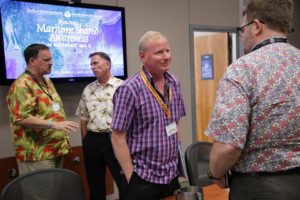
Brig. Gen. John O’Neil (center), with U.S. Pacific Command, talks with a participant in the May 16 to 19 maritime workshop at the Daniel K. Inouye Asia-Pacific Center for Security Studies. O’Neil, who is PACOM’s director of logistics, engineering and security cooperation, attended the event May 19 to serve receive country-specific reports on steps to take to build maritime shared awareness in Southeast Asia.
As part of the process, participants divided into teams to glean lessons learned from plenary topics and two case studies. The studies spotlighted sea vessel tracking and reporting processes conducted by the Pacific Islands Fishing Forum Fisheries Agency and the North Pacific Coast Guard Forum. Both represented best practices from outside Southeast Asia in terms of MDA-enabled coordinated operations and decision-making.
Roy Deveraturda, assistant secretary for plans and programs, Philippines Department of National Defense, said “We achieved agreement over some common things…it’s a beginning point. While this may not be perfect, we’re moving towards the objective (of) shared MDA and all the positive things we can do to (build) cooperation in the region.”
Among commonalities detailed in team reports were the need to:
- Institutionalize a regional information-sharing structure;
- Implement multilateral trust- and capacity-building measures, such as meetings and exercises;
- Standardize processes, data and terms associated with vessel tracking and reporting; and
- Educate fishing communities about their legal obligations.
Nankivell related that country team reports “reminded us of all the work that needs to get done. Work that will get done through cooperative efforts and through the enthusiasm demonstrated here to improve shared awareness in our maritime community.”
This week’s workshop was the second iteration of DKI APCSS’ ’Building Maritime Shared Awareness’ workshop in support of U.S. Pacific Command’s ongoing maritime mandate. The workshop provides both an opportunity to review progress over the last year in the ASEAN region on MDA issues and to continue the regional dialogue started in May last year.
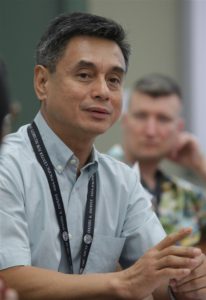
Roy Deveraturda, assistant secretary for plans and programs, Philippines Department of National Defense, provides perspective during a breakout
session as part of a May 16 to 19 workshop at the Daniel K. Inouye
Asia-Pacific Center for Security Studies. The workshop, titled “Building Maritime Shared Awareness in Southeast Asia II,” was designed to build toward
increased information sharing among policy makers, and enforcement and defense officials tasked with ensuring legal and sustainable usage of the region’s ocean resources.
Participants for this second iteration hailed from Brunei, Cambodia, Indonesia, Malaysia, Myanmar, Philippines, Singapore, Thailand, the United States, and Vietnam.
DKI APCSS is a Department of Defense institute that addresses regional and global security issues. Military and civilian representatives from the United States and Asia-Pacific nations participate in a comprehensive program of executive education, professional exchanges and outreach events, both in Hawaii and throughout the Asia-Pacific region.
The Center supports the U.S. Pacific Command by developing and sustaining relationships among security practitioners and national security establishments throughout the region. DKI APCSS’ mission is to build capacities and communities of interest by educating, connecting and empowering security practitioners to advance Asia-Pacific security. It is one of the Department of Defense’s five regional security studies centers.
Since opening in 1995, more than 10,000 alumni representing over 122 countries and territories have attended DKI APCSS courses and workshops.
-END-


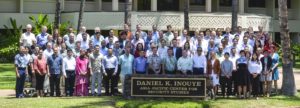
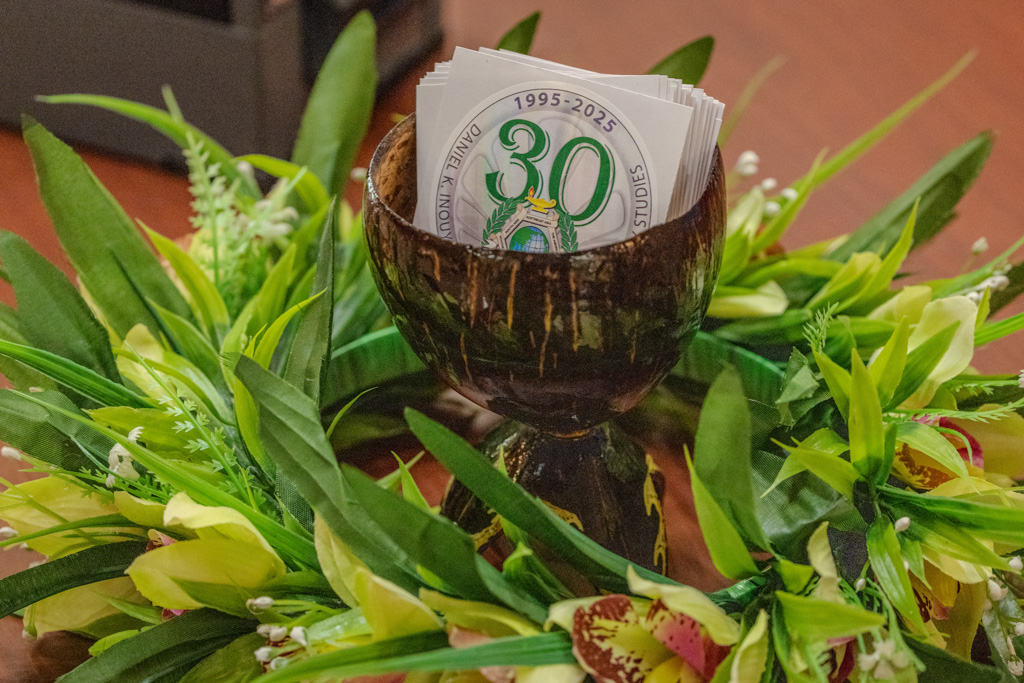
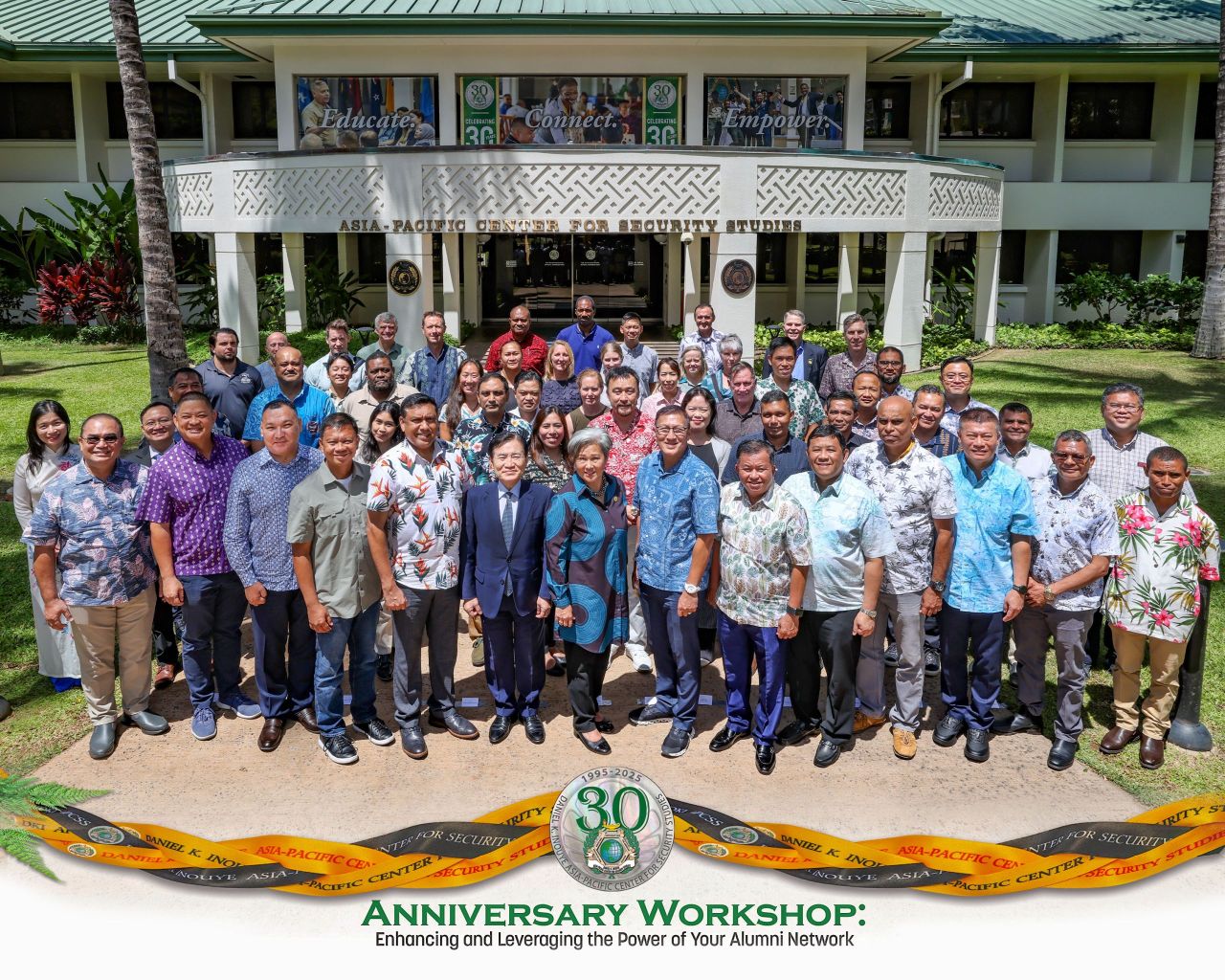
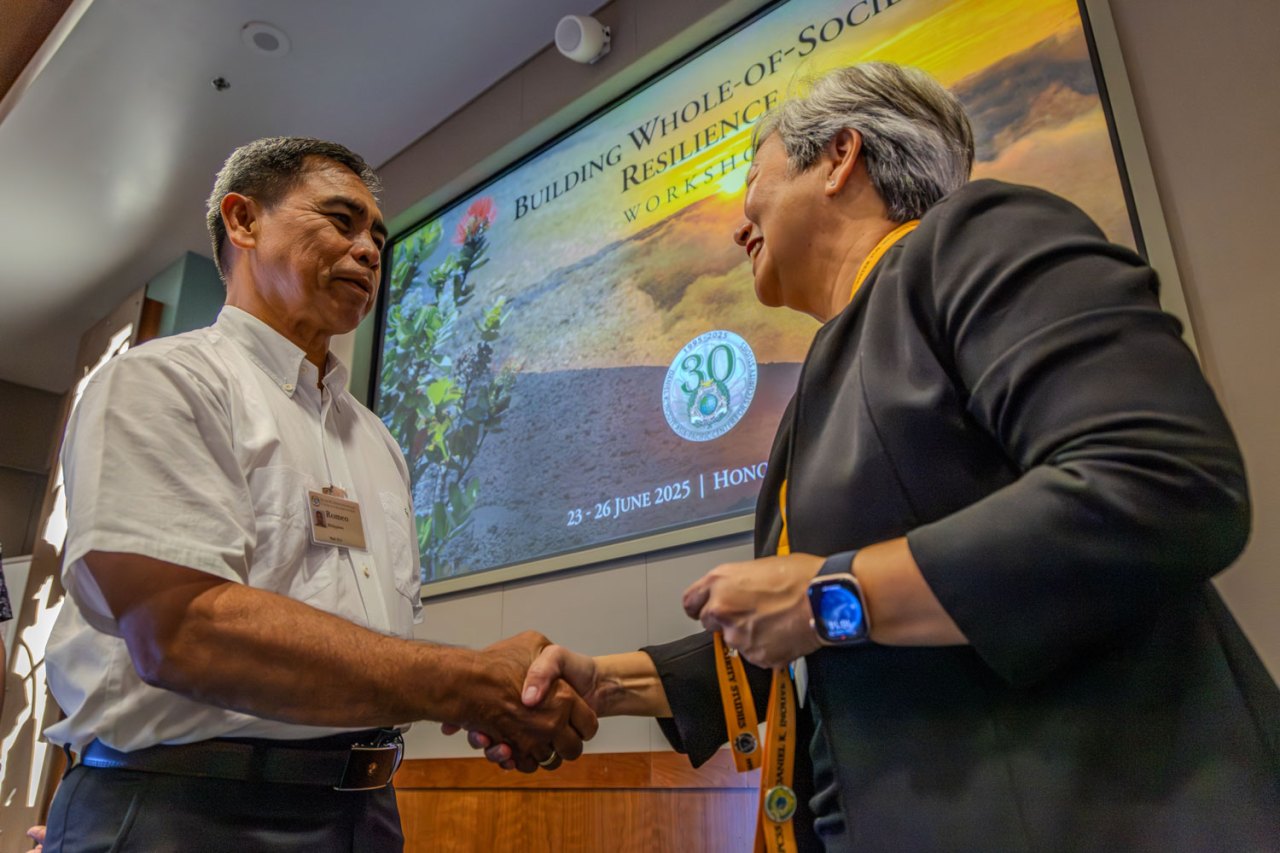




Very good workshop. Such workshops should be held regularly with the participation of alumni across the world, for sharing of knowledge and ideas. Think tank.
Aloha everybody in Daniel K Inouye APCSS ! I enjoyed to receive your letters ! I noticed you improve always communications between Alumni and the Center ! Keep on going forward in this trend ! I am Philippe EC 03-01, congratulations and Aloha from Madagascar !…